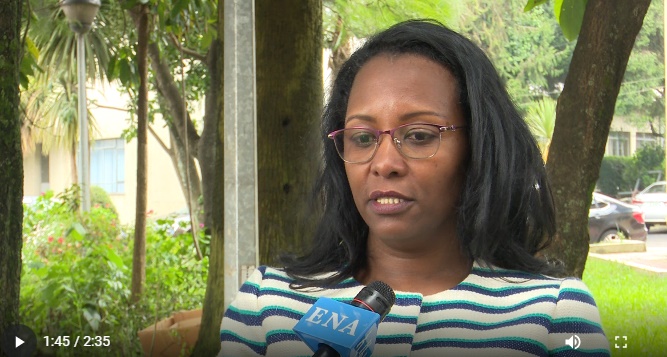Ethiopia Charts out Strategies to Minimizing Debt Burden - ENA English
Ethiopia Charts out Strategies to Minimizing Debt Burden

September 6/2019 Ethiopia is set to execute a range of domestic resource mobilizing mechanisms in order to enhance loan repayment capacity and minimize debt burden of the country, according to Ministry of Finance.
Ethiopia’s internal and external debt amounted to 52.57 billion USD up until last March 2019, of which 26.93 billion USD is external debt.
In an exclusive interview with ENA, Ministry Public Relations Director Hajji Ibsa said the government has totally terminated commercial loan as part of the various mechanisms to avoid debt burden.
The country will also fully focus on concessional loans which could be repaid in 40-50 years, he added.
“We have to strengthen the capacity of repaying debts through scaling up tax collecting capacity and have firm grip on stopping commercial loans,” Hajji underscored.
The other priority area will be narrowing the gap on trade imbalance and improving the quality of goods.
“Trade imbalance of the country has been causing economic burdens. So, modernizing the agriculture sector, increasing production and quality of goods and scaling up competitiveness are critical. That is why the government prioritizes agriculture and irrigation as critical sectors in the new budget year,” the director elaborated.
Working on industrial parks to ascertain their full potential is also stated among the major actions to be taken to enhance the export capacity of the country.
According to Hajji, the country still has rooms for loan. “It can borrow up to 55 percent of its GDP. Now we are around 49 percent. So we have still room for loan.”
Stating the importance of loan, he said a new regulation is put in place on how to activate loan agreements. A subcommittee has also been established to identify projects and facilitate loans.
From now on wards, loan agreements will be signed only after the plan commission evaluates it critically and the House of People's Representatives approves it, the director revealed.
Taxation will play a fundamental and irreplaceable role in reducing debt, according to Hajji, who underscored that there is no country that has developed without tax.
Revenues Minister, Adanech Abeebee said building a strong tax system is crucial to minimize debt burden and cover internal expenditure by domestic resource mobilization.
“Taxation is the reliable source of income for any country. At country level, we have been designing various projects covered by loan agreements, but we are now struggling to repay the debt on time. We have, therefore, to exert effort to repay the debt in the due date by strengthening domestic income and realizing the projects,” Adanech noted.
She stated that maximum efforts are being exerted to enhance the capacity of domestic resources mobilization, particularly by structuring a better tax system, in collaboration with stakeholders.
In the concluded Ethiopian budget year, the country paid 16.75 billion USD for domestic and foreign lenders.
Some 25 billion USD projected is expected to be paid at the end of this Ethiopian budget year.